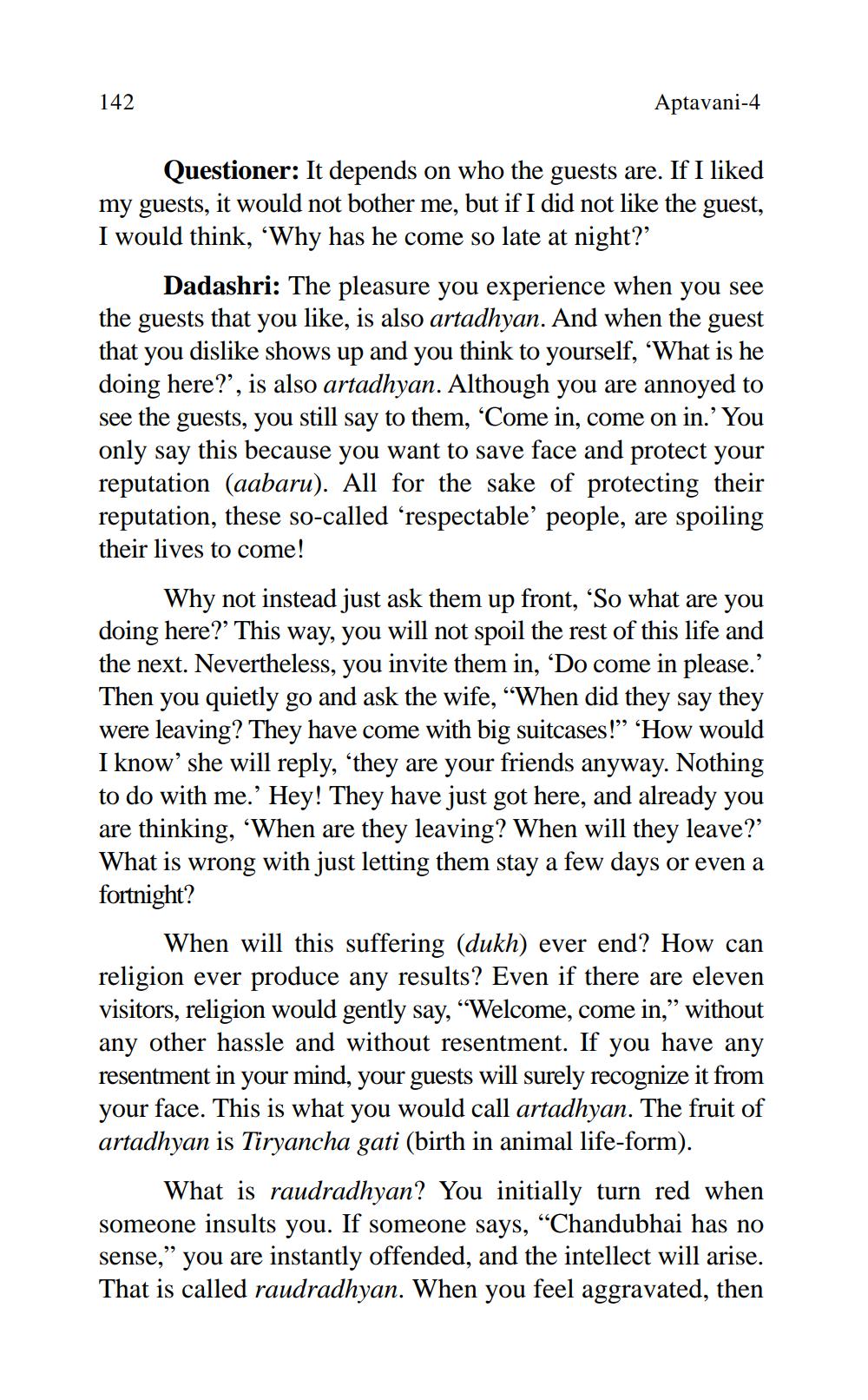________________
142
Aptavani-4
Questioner: It depends on who the guests are. If I liked my guests, it would not bother me, but if I did not like the guest, I would think, “Why has he come so late at night?'
Dadashri: The pleasure you experience when you see the guests that you like, is also artadhyan. And when the guest that you dislike shows up and you think to yourself, “What is he doing here?', is also artadhyan. Although you are annoyed to see the guests, you still say to them, “Come in, come on in.' You only say this because you want to save face and protect your reputation (aabaru). All for the sake of protecting their reputation, these so-called “respectable' people, are spoiling their lives to come!
Why not instead just ask them up front, 'So what are you doing here? This way, you will not spoil the rest of this life and the next. Nevertheless, you invite them in, 'Do come in please.' Then you quietly go and ask the wife, “When did they say they were leaving? They have come with big suitcases!" 'How would I know she will reply, they are your friends anyway. Nothing to do with me.' Hey! They have just got here, and already you are thinking, "When are they leaving? When will they leave?' What is wrong with just letting them stay a few days or even a fortnight?
When will this suffering (dukh) ever end? How can religion ever produce any results ? Even if there are eleven visitors, religion would gently say, "Welcome, come in,” without any other hassle and without resentment. If you have any resentment in your mind, your guests will surely recognize it from your face. This is what you would call artadhyan. The fruit of artadhyan is Tiryancha gati (birth in animal life-form).
What is raudradhyan? You initially turn red when someone insults you. If someone says, “Chandubhai has no sense,” you are instantly offended, and the intellect will arise. That is called raudradhyan. When you feel aggravated, then




